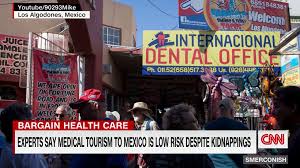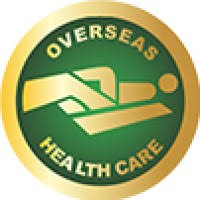
Dental Tourism: Enhancing Oral Health Through Global Medical Travel
The Rise of Dental Tourism: A Global Perspective
In recent years, the concept of medical tourism has expanded to include dental services, giving rise to a new trend known as dental tourism. This phenomenon involves individuals traveling to foreign countries to receive high-quality dental care at a fraction of the cost they would incur in their home country.
One of the primary reasons for the growing popularity of dental tourism is the significant cost savings associated with receiving dental treatments abroad. Many countries, particularly in Asia, Eastern Europe, and Latin America, offer competitive pricing for procedures such as dental implants, root canals, and cosmetic dentistry.
Aside from cost considerations, another key benefit of dental tourism is access to top-notch facilities and skilled professionals in popular tourist destinations. Many dental clinics catering to international patients are equipped with state-of-the-art technology and adhere to stringent international standards for quality and safety.
Moreover, dental tourists often enjoy shorter waiting times for appointments and procedures compared to their home countries. This means that individuals can undergo necessary treatments without lengthy delays, allowing them to address their oral health needs promptly.
Language barriers are also addressed through the provision of interpreter services at many dental tourism destinations. Patients can communicate effectively with their dentists and support staff, ensuring a smooth and hassle-free experience throughout their treatment journey.
It is important for individuals considering dental tourism to conduct thorough research on potential destinations and healthcare providers before making a decision. Factors such as reputation, accreditation, patient reviews, and success rates should all be taken into account when selecting a dental clinic overseas.
In conclusion, dental tourism offers an attractive option for individuals seeking affordable yet high-quality dental care in a global setting. By exploring this innovative approach to oral healthcare, patients can not only improve their smiles but also embark on memorable travel experiences that combine wellness with exploration.
Exploring the Benefits of Medical Tourism for Dental Care: Affordable, High-Quality Treatments Abroad
- Cost-effective dental treatments compared to domestic options.
- Access to high-quality dental care facilities with modern equipment.
- Shorter waiting times for appointments and procedures.
- Opportunity to combine dental treatment with travel and exploration.
- Availability of skilled professionals experienced in catering to international patients.
- Language barriers are often overcome through interpreter services.
- Variety of cosmetic and restorative dental procedures offered at competitive prices.
- Ability to receive specialized treatments not easily accessible in home country.
5 Key Drawbacks of Dental Tourism: Navigating Language Barriers, Quality Concerns, and More
- Language barriers may hinder effective communication between patients and dental professionals.
- Quality standards and regulations for dental care may vary across different countries, potentially leading to subpar treatment outcomes.
- Traveling long distances for dental procedures can be physically and mentally exhausting for some patients.
- Follow-up care and continuity of treatment may be challenging to maintain when receiving dental services abroad.
- Unforeseen complications or emergencies during or after dental treatments in a foreign country may pose logistical challenges for patients.
Cost-effective dental treatments compared to domestic options.
One significant advantage of dental tourism is the cost-effectiveness it offers compared to domestic options. Patients can access high-quality dental treatments at a fraction of the cost they would incur in their home country. This affordability factor allows individuals to undergo necessary procedures, such as dental implants or cosmetic dentistry, without breaking the bank. By opting for dental tourism, patients can save money while still receiving top-notch care in popular destinations known for their advanced dental facilities and skilled professionals.
Access to high-quality dental care facilities with modern equipment.
One of the key advantages of dental tourism is the access it provides to high-quality dental care facilities equipped with modern technology and state-of-the-art equipment. Many popular dental tourism destinations boast clinics that adhere to international standards of excellence, ensuring that patients receive top-notch care in a comfortable and advanced setting. This access to cutting-edge facilities allows individuals to undergo a wide range of dental procedures, from routine cleanings to complex treatments like dental implants, with the confidence that they are receiving world-class care at a fraction of the cost they might incur in their home country.
Shorter waiting times for appointments and procedures.
One significant advantage of dental tourism is the shorter waiting times for appointments and procedures compared to many home countries. Patients seeking dental care abroad can benefit from prompt scheduling of appointments, allowing them to receive necessary treatments without enduring long waiting lists. This efficiency not only saves time but also ensures that individuals can address their oral health needs in a timely manner, leading to improved overall well-being and satisfaction with their dental care experience.
Opportunity to combine dental treatment with travel and exploration.
One significant advantage of dental tourism is the opportunity it provides for individuals to combine essential dental treatments with travel and exploration. By seeking dental care in foreign destinations known for their scenic beauty, rich culture, and historical sites, patients can not only improve their oral health but also indulge in a memorable travel experience. This unique blend of healthcare and leisure allows individuals to make the most of their time abroad, creating lasting memories while receiving quality dental care at a fraction of the cost they would incur in their home country.
Availability of skilled professionals experienced in catering to international patients.
One significant advantage of dental tourism is the availability of skilled professionals who are experienced in catering to international patients. Dental clinics in popular medical tourism destinations often employ dentists and support staff who are well-versed in treating patients from diverse cultural backgrounds. These professionals not only possess the necessary expertise and qualifications but also understand the unique needs and preferences of international patients. Their ability to communicate effectively, provide personalized care, and ensure a comfortable experience for individuals seeking dental treatments abroad contributes to the overall success and appeal of dental tourism as a viable option for quality oral healthcare.
Language barriers are often overcome through interpreter services.
One significant advantage of dental tourism is the ability to overcome language barriers through the provision of interpreter services. This ensures effective communication between patients and dental professionals, facilitating a smooth and seamless treatment experience. By having access to interpreters, patients can convey their needs and concerns accurately, while dentists can provide clear instructions and explanations, ultimately enhancing the quality of care and ensuring that all parties involved are on the same page throughout the dental treatment process.
Variety of cosmetic and restorative dental procedures offered at competitive prices.
One significant advantage of dental tourism is the wide range of cosmetic and restorative dental procedures available at competitive prices. Patients seeking treatments such as teeth whitening, veneers, dental implants, or crowns can benefit from cost-effective options without compromising on quality. By exploring dental tourism destinations, individuals have access to skilled professionals and modern facilities that offer a diverse array of services to enhance their smiles and restore oral health—all at a fraction of the cost they might incur in their home countries.
Ability to receive specialized treatments not easily accessible in home country.
One significant advantage of dental tourism is the opportunity to access specialized treatments that may not be readily available in one’s home country. By traveling abroad for dental care, patients can benefit from cutting-edge procedures, advanced technologies, and specialized expertise that might not be accessible locally. This aspect of medical tourism dental opens up a world of possibilities for individuals seeking innovative solutions to complex dental issues, ultimately enhancing their overall oral health and well-being.
Language barriers may hinder effective communication between patients and dental professionals.
Language barriers present a significant challenge in the realm of dental tourism, potentially impeding effective communication between patients and dental professionals. Misunderstandings or miscommunications due to language differences can lead to confusion, errors in treatment, and overall dissatisfaction with the dental care received. Patients may struggle to convey their symptoms, concerns, or preferences accurately, while dentists may find it challenging to explain procedures or provide post-treatment instructions clearly. Addressing language barriers through interpreter services or multilingual staff is crucial to ensure that patients receive the highest standard of care and fully understand their treatment options while undergoing dental procedures abroad.
Quality standards and regulations for dental care may vary across different countries, potentially leading to subpar treatment outcomes.
One significant drawback of dental tourism is the variability in quality standards and regulations for dental care across different countries. This inconsistency can result in subpar treatment outcomes for patients seeking dental procedures abroad. Without uniform guidelines and oversight, there is a risk of receiving care that may not meet the same level of quality and safety as one would expect in their home country. It is crucial for individuals considering dental tourism to thoroughly research and verify the credentials of potential providers to mitigate the potential risks associated with differing standards of care.
Traveling long distances for dental procedures can be physically and mentally exhausting for some patients.
Traveling long distances for dental procedures as part of medical tourism can present a significant challenge for some patients, leading to physical and mental exhaustion. The strain of extended travel, adjusting to unfamiliar environments, and dealing with potential language barriers can take a toll on individuals seeking dental care abroad. The discomfort and fatigue associated with long journeys may impact patients’ overall well-being and ability to undergo dental treatments comfortably. It is essential for patients to carefully consider their health condition and personal preferences before embarking on dental tourism to ensure a positive and manageable experience.
Follow-up care and continuity of treatment may be challenging to maintain when receiving dental services abroad.
One significant drawback of dental tourism is the potential difficulty in ensuring follow-up care and maintaining continuity of treatment when receiving dental services abroad. Patients may face challenges in coordinating post-operative appointments, addressing complications, or seeking additional treatments once they return to their home country. The distance and logistical barriers involved in seeking ongoing care from the same dental provider can lead to disruptions in treatment plans and potentially compromise the overall effectiveness of the dental procedures received overseas.
Unforeseen complications or emergencies during or after dental treatments in a foreign country may pose logistical challenges for patients.
One significant drawback of dental tourism is the potential for unforeseen complications or emergencies to arise during or after dental treatments in a foreign country. Such situations can pose logistical challenges for patients, as they may find themselves far from their regular healthcare providers and support systems. Navigating unfamiliar healthcare systems, language barriers, and differing medical practices can add stress and complexity to addressing unexpected issues that require immediate attention. This aspect highlights the importance of thorough research, careful planning, and clear communication with both the dental provider abroad and the patient’s home healthcare team to mitigate risks and ensure a comprehensive approach to managing any complications that may arise.

